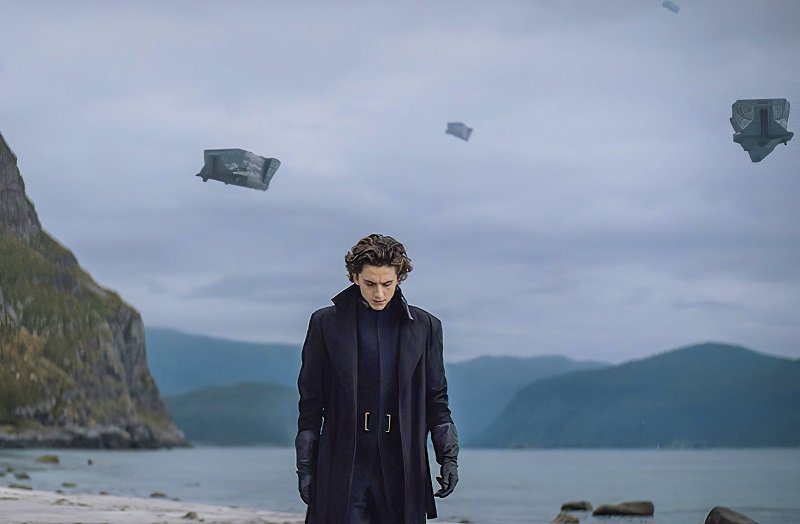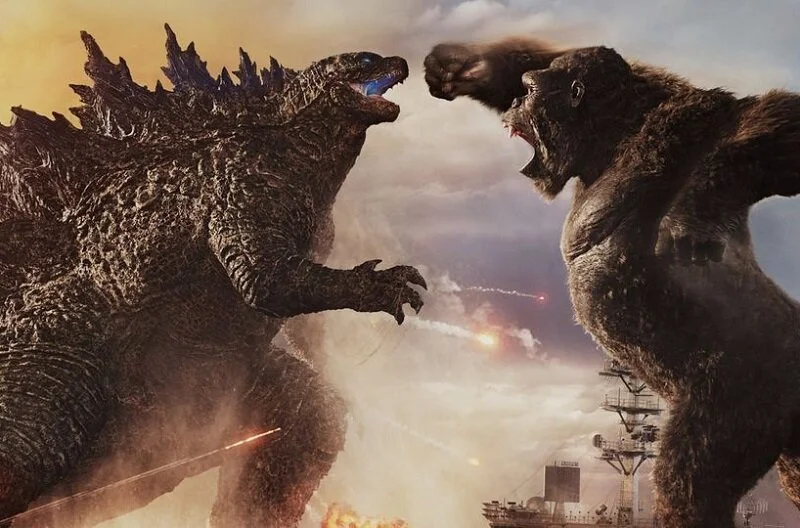Denis Villeneuve's Dune is a Superb Vision of an Unfilmable Story
Dune. Image courtesy of Warner Bros.
The 2021 version of Dune, directed by Denis Villeneuve, traveled a long road to get here. It’s a $165 million gamble that audiences will show up for a majestic, ponderous and slow-moving sci-fi epic that has swallowed the ambitions of famous movie directors for decades. Based on Frank Herbert’s 1965 novel about the politics of a sprawling galactic empire, it touches on themes of resource exploitation, colonialism, environmentalism, family, betrayal and the ethics of space witches running an intergalactic breeding program to create a Messiah.
The richness of the world-building and the mythology of Dune has always been its downfall. It’s just too much stuff to condense into a feature film run time. Add onto that the fact that the movie has been delayed by the pandemic, that people still aren’t comfortable going out to theaters, and that Denis Villeneueve’s last plodding sci-fi epic didn’t make any money, and you get a sense for how much of a gamble this really is for Warner Bros. They have tried to build a brand around self-serious epics with brooding characters moping around in washed out grayscale, and it takes a certain amount of guts to keep going back to that well after the well-deserved ridicule heaped on their DC Universe.
But let me tell you unequivocally: Dune is masterful. We know that Villeneuve has a special gift for aesthetics, for framing and composing epic visuals. And that’s a necessity when shooting Dune, because so much of the world-building has to be done visually, subtly and in the background otherwise you run into the same thing that derailed David Lynch which is too much exposition. They were smart to divide the film into two parts, so that the movie’s runtime is not eaten up with people awkwardly explaining what a jom gabbar is. It opens with a brief, succinct prologue ala Lord of the Rings which leans heavily on the film’s visual feel, and some exposition of that nature is necessary when building a fictional world of this breadth and scope. But for the most part, the images do the talking. I hope that Warner Bros’ other golden boy, Christopher Nolan, takes some time to study this film.
Because the images do the talking, the detail put into the production design and cinematography are crucial. And they are just breath-taking. I loved every minute of this film, because there’s so many things to soak in, in every frame. You get the feeling that you really are being inserted into a 10,000-year old galactic empire, with these monstrously large ships, cities built into the rock of Arrakis, these fully textured worlds and lives and back-stories. It feels like you are being offered a window of opportunity to look in on something real and detailed, rather than being told through voice-over or clumsy dialogue that these things exist. The runtime is almost three hours, but because they pulled the world-building off so brilliantly it never drags.
What about the story? Well, because they’ve broken it up into two parts it has more time to breathe. It is a bit impersonal and emotionless, and there are perhaps a few too many flashbacks and dream sequences, but that’s about the only fault I can find with it. I did not originally think Timothee Chalamet was a good casting choice for Paul Atreides, but was pleased to realize my mistake. He pulls it off and manages to carry the film pretty well. The relationship with his mother is also, somehow, quite touching and real. I think it’s because the film just treats everything - all the weird space wizardy mumbo jumbo and everything else - as if it’s real, and an ordinary part of life in that world. There’s not even a hint of overacting or trying to over-sell this stuff through theatrics. It feels real, so it works.
But will audiences show up and recognize what they are seeing? Will they make the second half of the story? That remains to be seen. Arguably the first half had an easier job, introducing us to this world, its characters, its politics and its central dramas and themes. The second part is where the story really starts to get weird, and dip into themes of holy war. But even if Warner Bros cannot justify spending another $165 million to finish out the story, I am glad that we at least finally got a vision of Dune and its world that is worthy of such a great and heretofore unfilmable property.





